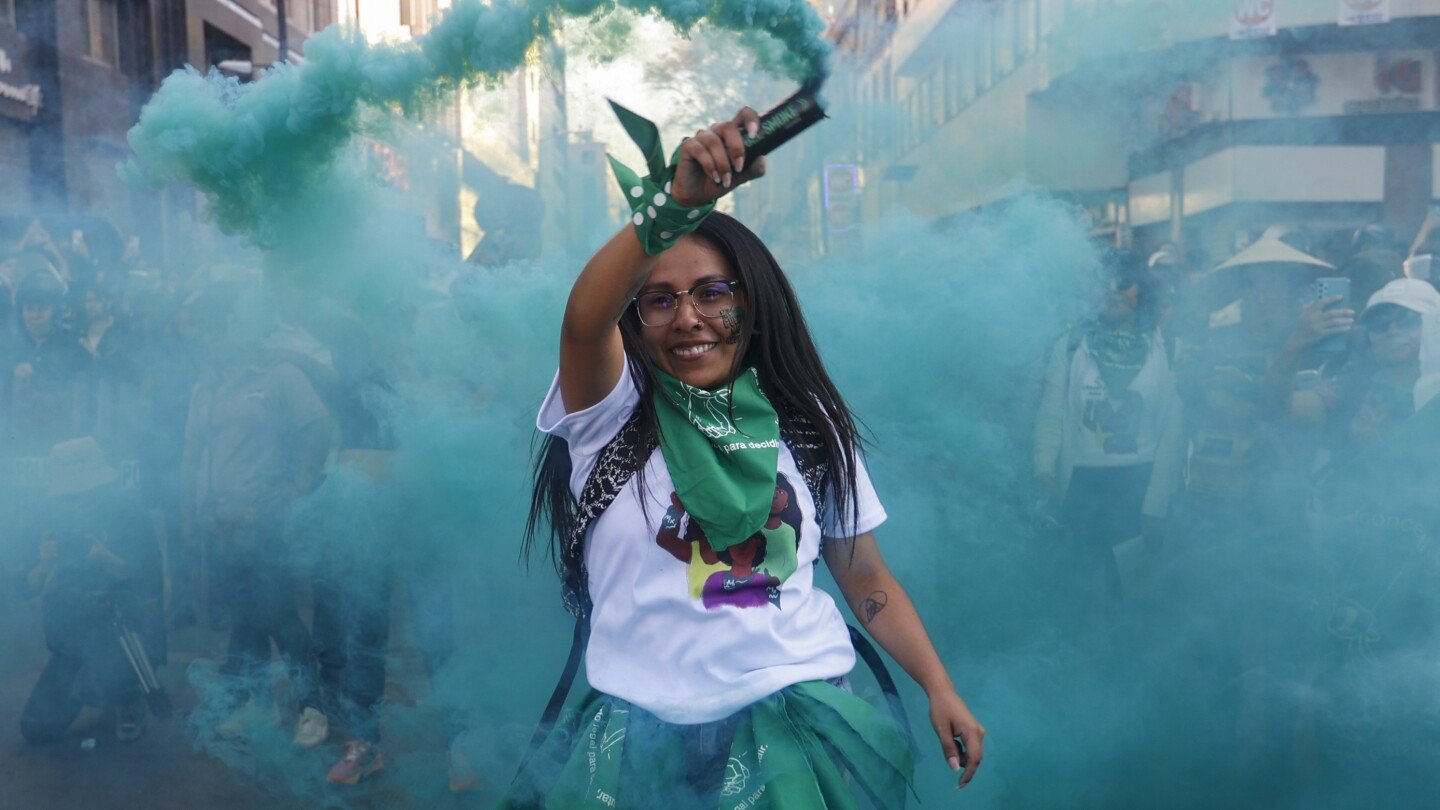The streets of cities across Latin America were bathed in green Thursday as tens of thousands of women marched to commemorate International Safe Abortion Day.
Latin American feminists have spent decades fighting to roll back strict prohibitions, although there are still few countries with a total ban, like El Salvador and Dominican Republic.
In Mexico, marchers celebrated the recent decision by Mexico’s Supreme Court to decriminalize abortions at the federal level. In Argentina, marchers had a more somber tone, worrying that the strength of a populist far-right presidential candidate going into elections in October could signal peril after years of work by feminists.
Abortion was the heart of the protests, but crowds of women also raised alarm about the region’s high rates of gender-based violence as well as abuses aimed at LGBTQ+ communities.
Most economies need population growth. If births fail to outnumber deaths, all social programs become unsustainable.
If you need to know why governments are taking away women’s rights to choose, it really does boil down to being on the wrong side of sustainability.
Population: The ultimate pyramid scheme that destroys the planet.
Can we just reset humanity and start over? I’m so tired of human stupidity. The worst part about growing older is realising that a whole new generation is going to be equally dumb and human morality is just brownian motion.
Women kan chose chose what happens to their body? mind fucking blown.
This is the best summary I could come up with:
Latin American feminists have spent decades fighting to roll back strict prohibitions, although there are still few countries with a total ban, like El Salvador and Dominican Republic.
In Argentina, marchers had a more somber tone, worrying that the strength of a populist far-right presidential candidate going into elections in October could signal peril after years of work by feminists.
Abortion was the heart of the protests, but crowds of women also raised alarm about the region’s high rates of gender-based violence as well as abuses aimed at LGBTQ+ communities.
The march came just weeks after Mexico’s Supreme Court knocked down all federal criminal penalties for abortion, ruling that national laws prohibiting the procedure are unconstitutional and violate women’s rights.
While 20 Mexican states still have abortion bans on the books, the decision by the Supreme Court greatly expanded access to the procedue in a country where reproductive laws were long defined by its religious and conservative roots.
As elections loom in October, many in the crowd marching toward the Congress building fear their legal gains may soon get rolled back with the rise of right-wing candidate Javier Milei.
The original article contains 631 words, the summary contains 189 words. Saved 70%. I’m a bot and I’m open source!
Funny, in Chile an anti-abortion article for a new constitution has been approved this month




